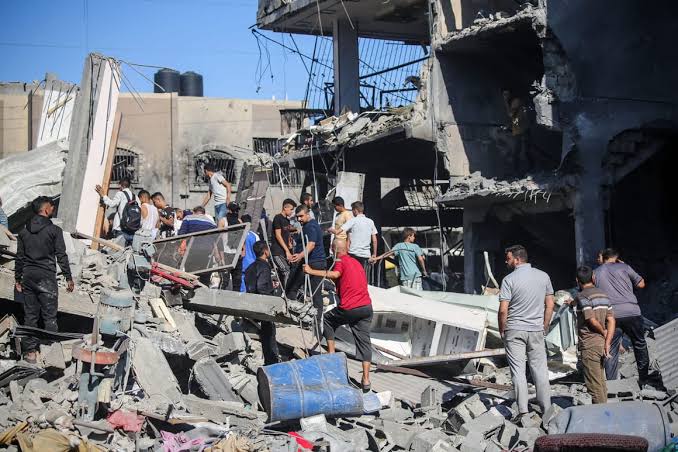
Faith Nyasuguta
As the conflict between Israel and Lebanon intensifies, the plight of African migrant workers in Lebanon has become increasingly dire. These workers, who came to Lebanon seeking better opportunities, now find themselves trapped in a war zone with limited options for escape or survival.
The International Organization for Migration (IOM) estimates that there are nearly 170,000 migrant workers in Lebanon, many of whom are from African countries such as Ethiopia, Kenya, and Sierra Leone. These workers are primarily employed in domestic roles under the Kafala system, a sponsorship arrangement that ties their legal status to their employers. This system often results in the confiscation of their passports, making it nearly impossible for them to leave the country without their employer’s consent.
The recent escalation of the conflict has exacerbated the already precarious situation for these workers. Israeli airstrikes have targeted various parts of Lebanon, leading to widespread destruction and displacement. The Lebanese government reports that over 1.2 million people have been displaced due to the ongoing bombardment. With limited resources, the government has prioritized the needs of its citizens, leaving migrant workers to fend for themselves on the streets.
Mary Koroma, a 28-year-old migrant worker from Sierra Leone, shared her harrowing experience. She went to Lebanon to support her family back home, sending her entire monthly salary of $200 to her children and husband. However, the war has left her jobless and homeless. “I came here to work to take care of my family, my kids, but since this war, I don’t have a job. Because of the war, there are no jobs everywhere,” she said.
Koroma’s story is just one of many, highlighting the vulnerability of migrant workers in conflict zones.
Hassanatu Conteh, another migrant worker from Sierra Leone, faces even greater challenges. She was involved in a car accident just before the conflict intensified, which has severely limited her mobility. “I don’t know yet what will happen in the future. Yes, I feel scared because of the war and my condition, because I cannot work for myself,” she explained. Conteh’s situation emphasises the compounded difficulties faced by those with disabilities in such crises.
Lebanese activists have stepped in to provide some assistance to these stranded workers. They are advocating for the release of workers from the Kafala system and are working to provide temporary shelter and basic necessities. However, the scale of the crisis far exceeds the capacity of these grassroots efforts.
The international community has also been slow to respond. While some countries have begun airlifting their citizens out of Lebanon, many African nations lack the resources to do the same for their nationals. This has left thousands of migrant workers with no clear path to safety.

As the conflict continues, the fate of these workers remains uncertain. Without significant international aid and a concerted effort to address the systemic issues within the Kafala system, many will continue to suffer in silence. The world must not turn a blind eye to their plight; instead, it must act swiftly to provide the necessary support and protection to ensure their safety and dignity.
RELATED:








